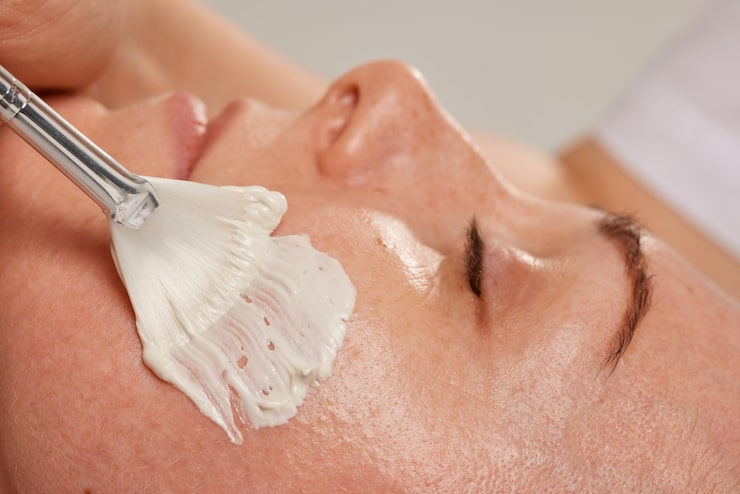Are Chemical Peels Effective Against Hyperpigmentation?
- DYNAMIC AESTHETIC
- Aug 19, 2025
- 3 min read
Hyperpigmentation is one of the most common skin concerns in Dubai. Excess melanin production can result in dark spots, uneven skin tone, and stubborn patches that affect overall skin radiance. Sun exposure, hormonal changes, acne scarring, and aging are frequent causes of hyperpigmentation. Many individuals in Dubai turn to Chemical Peels In Dubai as an effective method to address this concern and achieve smoother, brighter skin.
How Chemical Peels Work Against Hyperpigmentation
Chemical peels involve applying a specialized solution to the skin that exfoliates the outer layers. By removing dead and damaged skin cells, these peels stimulate cell turnover and promote regeneration. This process gradually breaks down melanin deposits and evens out pigmentation. Depending on the type of peel, the effects can vary:
Superficial peels: Target the outermost layer, ideal for mild pigmentation and sunspots.
Medium-depth peels: Penetrate deeper layers, effective for melasma and acne-related pigmentation.
Deep peels: Work on severe pigmentation issues but require careful aftercare and professional supervision.
Consistency in treatment is key, as several sessions are often necessary to see visible improvements in stubborn pigmentation.

Popular Chemical Peels for Hyperpigmentation
Different peels are designed to cater to specific skin needs. In Dubai, some of the most commonly used peels for hyperpigmentation include:
Glycolic Acid Peel: A gentle peel that helps remove dead skin and improve skin texture.
Salicylic Acid Peel: Especially effective for acne scars and pigmentation caused by inflammation.
Lactic Acid Peel: Known for its hydrating properties, suitable for sensitive skin.
TCA Peel (Trichloroacetic Acid): Medium-depth peel targeting deeper pigmentation and fine lines.
Selecting the right type of peel is essential to ensure maximum results without causing irritation or post-inflammatory hyperpigmentation.
Additional Benefits of Chemical Peels
Beyond addressing pigmentation, chemical peels offer multiple skin benefits:
Stimulate collagen production for firmer, youthful skin
Reduce the appearance of fine lines and wrinkles
Improve skin texture and smoothness
Enhance the absorption of skincare products for better effectiveness
Provide a natural glow by removing dull, damaged skin cells
Regular chemical peel treatments can significantly improve overall skin health and appearance.
Who Can Benefit From Chemical Peels?
Chemical peels are suitable for most skin types, though individuals with darker skin tones should choose mild peels to avoid complications. They are particularly effective for people dealing with:
Sunspots from prolonged UV exposure
Melasma triggered by hormonal changes
Post-inflammatory pigmentation from acne or injury
Uneven skin tone and texture
Professional assessment ensures the chosen peel is tailored to specific skin concerns.
Precautions and Aftercare
Proper aftercare is essential to maintain the results of a chemical peel. Following the procedure, the skin is more sensitive and prone to damage. Key aftercare tips include:
Apply sunscreen daily to prevent new pigmentation
Avoid harsh skincare products and exfoliants until the skin heals
Stay hydrated and maintain a gentle skincare routine
Expect mild redness and peeling, which is normal and temporary
Following these guidelines enhances the effectiveness of the peel and helps maintain a radiant complexion.
Conclusion
Chemical peels have proven to be highly effective in reducing hyperpigmentation and restoring skin’s natural glow. They work by exfoliating damaged skin, stimulating regeneration, and gradually evening out dark spots. For anyone looking to improve skin tone and overall appearance safely, professional Chemical Peels Dubai treatments provide a reliable and results-driven solution. With proper care and consistent sessions, hyperpigmentation can be significantly reduced, leaving skin looking brighter, smoother, and healthier.



Comments